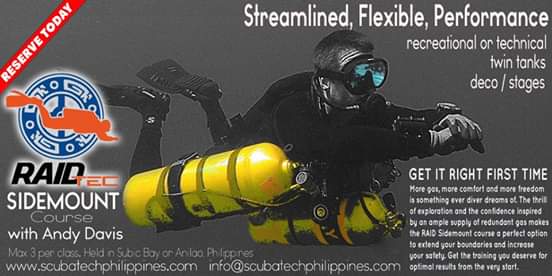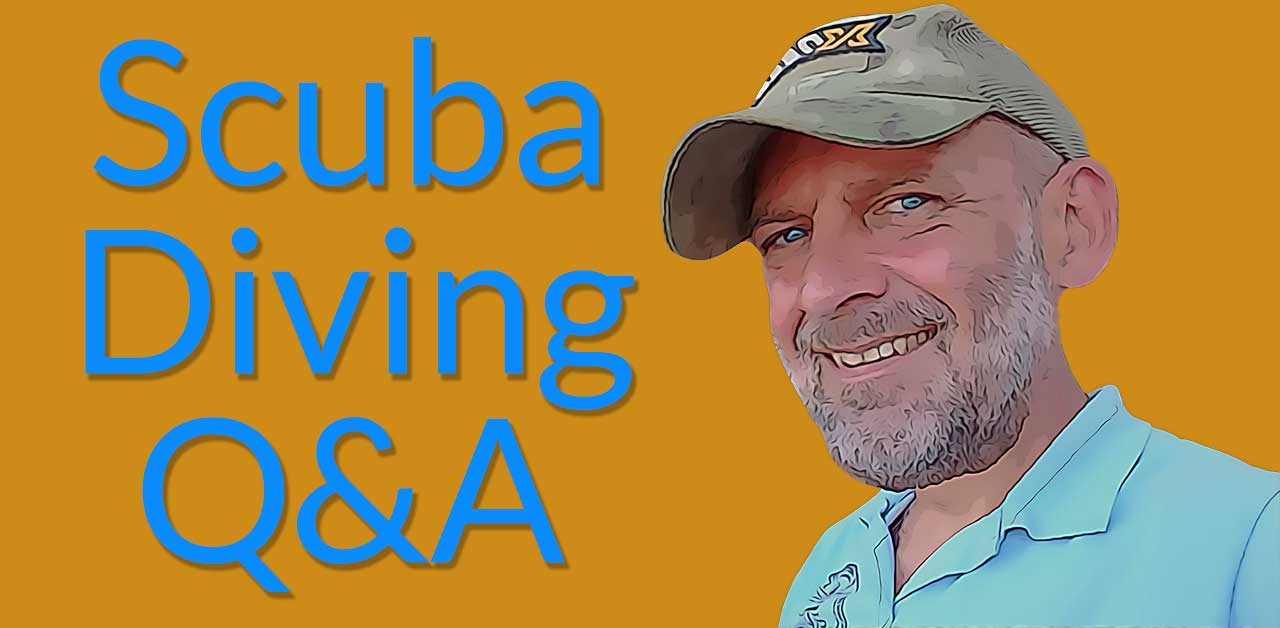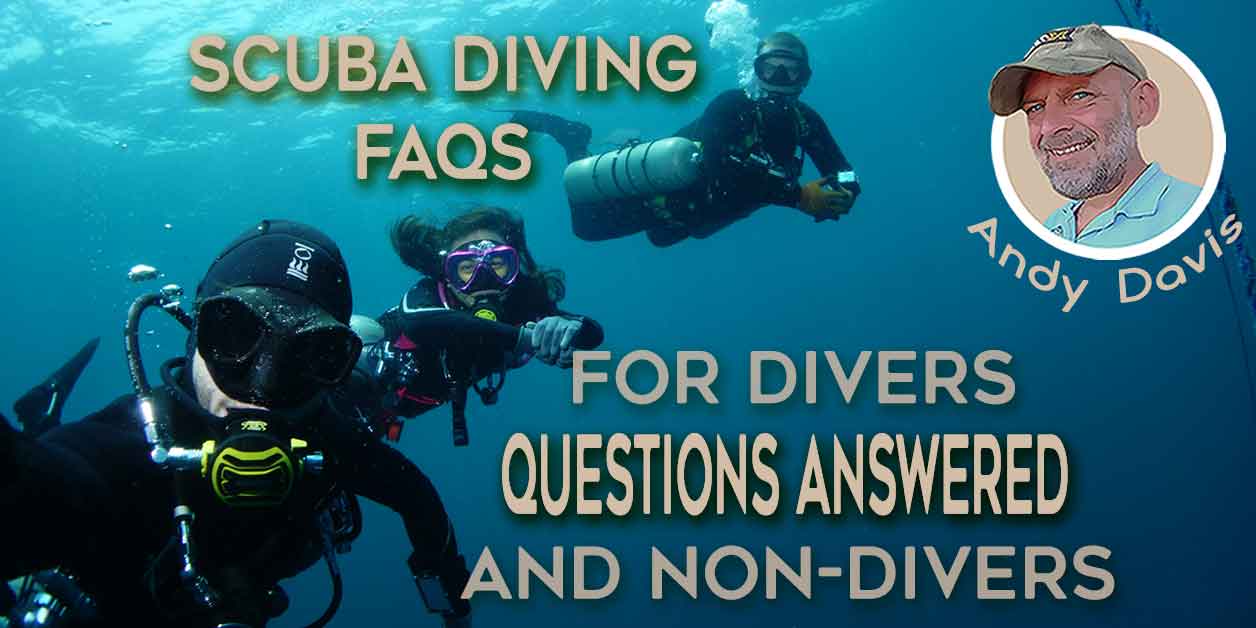Scuba Q and A:
QUESTION: I am a recreational diver and I dive mostly with my husband. Our relationship issues (bickering) caused me stress. Is this a factor I should consider when scuba diving?
 Andy’s Answer: [no_toc]
Andy’s Answer: [no_toc]
I know of at least one diving fatality that could otherwise have been avoided if intra-relationship dispute and/or the associated stress wasn’t a factor.
It’s worth bringing up buddy relationships when considering dive safety – especially where those relationships exist outside of diving and may bring issues into the underwater equation.
Likewise, it’s also worth bearing in mind that overall stress levels, which certainly impact on a divers’ stability and ability to cope with underwater incidents, must include pre-diving stress that is brought into the water.
Marital arguments, financial stresses, medical concerns etc – all of these things serve to destabilise the diver psychologically and lower the scuba divers’ stress management threshold – bringing closer the potential of acute stress reaction (panic).
I normally give myself an honest physical and psychological examination at the beginning of every diving day. Any factors arising from that self-assessment help to shape the nature/limits of my diving that day. If I’m having “a bad day”, I take it easy in the water.
QUESTION: How can a scuba diver reduce the probability of triggering an irrational and uncontrolled panic response?
 Andy’s Answer:
Andy’s Answer:
I think there are two primary methods:
1) Stress Management:
Targeting and reducing stress prior to and during the dive. Mental visualisation, breathing exercises and ‘mantras’ all help with this. There are many non-diving specific solutions that can easily be applied by scuba divers, for instance; yoga techniques, meditation etc
I always have a pre-dive routine of stopping activity (think super-stressed and mega-busy instructor here) before getting kitted up. I do everything I have to do but then stop everything… retreat ‘into my shell’ for a few minutes before getting into the water.
Likewise, if an incident happens underwater, the first thing I do is STOP and THINK. My initial thoughts are directed towards psychological control – calm my mind, calm my breathing. My mantra then is “I have air, I can breathe, I am alive“. Time and gas are critical – so I seek to maximise them by staying calm and controlling my respiration. Once calm, I approach the problem solving needed to resolve the incident.
2) Comfort Zone Development:
It’s important to associate your personal limitations in respect of your comfort underwater.
Familiarity with conditions/sites/equipment, along with confidence in your abilities to mitigate potential risks and resolve all reasonable contingencies is a large part of your ‘comfort zone’.
It’s helpful to be aware that comfort zone exists in both best-case and worst-case scenarios. Generally, during a dive, we are aware of our comfort zone in respect of ideal circumstances. However, we should also strive to ensure that our comfort zone extends towards dealing with the foreseeable ‘worst-cases’.
One good solution to that is effective initial training and post-training practice and repetition of necessary contingency skills and procedures. There’s a wide gulf between saying “I am confident to cope with this dive” or saying “I am confident to cope with anything that may go wrong on this dive“.
Another method/approach combines both of the above. It is to prepare and familiarise yourself with stress. In essence, to develop a comfort zone that encompasses dealing with stressful events and situations through stress management. Under controlled circumstances, safely apply dive stress through task loading, role-play or other methods so that you can gain more capacity to operate and control your psychological balance under those circumstances.
QUESTION: I get very stressed when diving in strong current. Should I dive more often in strong current to get more used to it? Should I gradually increase the speed of the current in which I dive? Or shall I just forget it and avoid diving in strong current because it always makes me nervous?
 Andy’s Answer:
Andy’s Answer:
That’s a good example of comfort zones.
There really is no right answer – it’s a personal decision based on how you feel you are developing. Diving should be fun – if you don’t enjoy doing something, then you shouldn’t do it.
However, if you want to challenge yourself and/or have a direct need to increase a specific capability, then you should attempt to develop your familiarity in those conditions, gain positive experiences and extend your comfort zone to encompass those conditions.
It’s vital that these experiences are positive, otherwise, you’ll only reinforce negative connections you make with those conditions – your comfort zone won’t develop… worse still, it may retract and/or become more intractable.
For that reason, you must ensure that any development you make is going to be positive. That could mean a more progressive and measured approach with staged exposures to gradually increasing stressors over a longer timescale.
On other occasions, for other people, it may mean ‘jumping in feet first’ and simply proving to yourself that there was nothing to be worried about in the first place.
Of course, you must also remember to consciously apply all aspects of your personal stress management strategy during those occasions – that’s good practice and also helps ensure a positive outcome.
Another factor in developing your comfort zone is the benefit of external support.
Most divers feel more comfortable when supervised by an experienced divemaster or instructor, or when diving in the care of a more experienced and capable buddy. In this respect, the diver is utilising the existence of support to off-set certain personal stressors.
Put simply, you are never quite as concerned when you know you have someone available to get you out of trouble.
Using assistance to off-set stress can be a useful tool in developing comfort zones. It allows you to develop familiarity with the specific stressor conditions, without an overload of stress that could otherwise make the experience negative. Of course, it does also increase your safety in very real terms.
The only downside to using assistance to reduce stress is that it can be easy to become reliant on that support. Once the original stressors become familiar and your comfort zone expands to encompass them, then you still have to gain the confidence to deal with them without support.
Having your metaphorical handheld is a good thing for a while, but can become a bad thing if allowed to persist as reliant behaviour.
About the Author
 Andy Davis is a RAID, PADI TecRec, ANDI, BSAC and SSI qualified independent technical diving instructor who specializes in teaching advanced sidemount, trimix and wreck exploration diving courses across South East Asia. Currently residing in ‘wreck diving heaven’ at Subic Bay, Philippines, he has amassed more than 9000 open circuit and CCR dives over 27 years of diving across the globe.
Andy Davis is a RAID, PADI TecRec, ANDI, BSAC and SSI qualified independent technical diving instructor who specializes in teaching advanced sidemount, trimix and wreck exploration diving courses across South East Asia. Currently residing in ‘wreck diving heaven’ at Subic Bay, Philippines, he has amassed more than 9000 open circuit and CCR dives over 27 years of diving across the globe.
Andy has published many magazine articles on technical diving, has written course materials for dive training agency syllabus, tests and reviews diving gear for major manufacturers and consults with the Philippines Underwater Archaeology Society.
He is currently writing a series of books to be published on advanced diving topics. Prior to becoming a professional technical diving educator in 2006, Andy was a commissioned officer in the Royal Air Force and has served in Iraq, Afghanistan, Belize and Cyprus.


Originally posted 2018-03-07 23:54:39.


